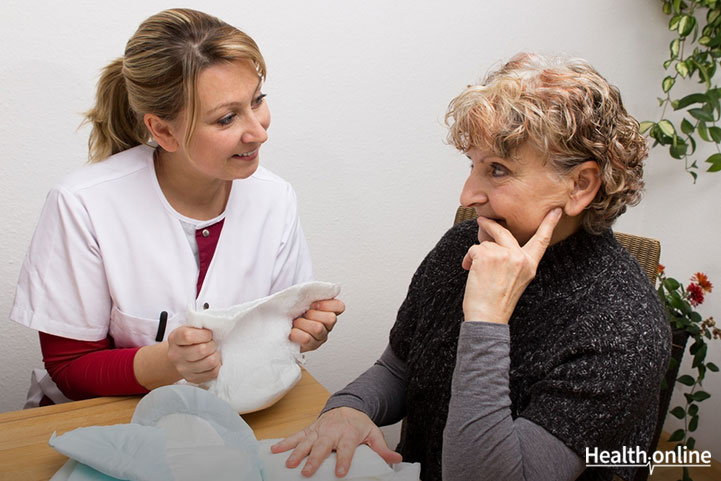
Ways to Keep Your Bladder Healthy
Facing problems with your bladder? Many people, particularly those above the age of 35, suffer from various bladder-related issues, such as dribbling, over-reactive bladder, and urinary incontinence. If you are concerned about the health of your bladder and wish to avoid suffering from any of the aforementioned symptoms, then read on to learn about steps you can take to keep your bladder healthy and strong:
Maintain a healthy weight
The relationship between bladder health and your body weight may not be immediately apparent. It is a consequence of the structure of your body. The more your body weighs, the more the stress applied to all your body parts. So greater body weight places greater stress on the bladder. That’s why most people suffering from urinary incontinence are either overweight or obese.
So maintaining a healthy weight should be your first priority, when it comes to improving bladder health. Start performing regular exercises like walking, running, swimming, cycling, gymming etc. And maintain a healthy diet full of fruits and vegetables.
Perform Kegel exercises
This is a useful step that can be taken by women suffering from urinary incontinence, especially after giving birth. One reason for bladder incontinence is the poor muscle tone of the pelvic muscles. Pelvic muscles surround the bladder. Any weakening of the pelvic muscles, mainly due to delivery, leads to decreased support to the bladder. To strengthen the muscles, there are a few exercises, called Kegel exercises, that can be performed to increase the strength of the pelvic muscles. The exercise involves alternate contraction and relaxation of the pelvic muscles. The pelvic muscles and the bladder have the same nerve supply. This explains why bladder responds to these exercises. Performing this exercise regularly gives you great long-term control over your bladder.
Check your medication
Some drugs cause or accelerate incontinence. You have to be all the more careful when you take certain medications, such as diuretics and opioids. Opt for alternatives that will have lesser effects on the bladder. Do consult your doctor regarding this.
Watch what (and how much) you drink
Drinks like tea, coffee, soda, beer, alcohol, and caffeine, contain products that increase the activity of the bladder. When bladder activity increases, the risk of having a leaky bladder also increases. There is a certain amount of water that we must drink, and we can also drink other beverages in permissible limits. Crossing these limits leads to excessive urination. Drinking too little water is also not a good idea, as it will irritate the bladder and lead to incontinence in the long run. So your best bet is to moderate your drinking.
Avoid foods that irritate your bladder
Some foods that contain acid, like tomatoes and citrus fruits, cause irritation to the bladder. This explains why after drinking lemon juice, you immediately feel like emptying the bladder. Also, foods that contain a lot of spices increase bladder irritation. So think twice about having that spicy burger, if you’re concerned about your bladder! There are also foods that may not themselves be an irritant, but that will act on your bladder like caffeine. The bottom line is, if you want to rid yourself of bladder problems, you need to rethink your diet.
Stop smoking
Nicotine is the causative agent in bladder cancer. Moreover, nicotine also irritates the bladder. Chronic smoking leads to chronic coughing, that might increase the chances of bladder incontinence. So if you are really focused on ridding yourself of bladder problems, then you must quit smoking.
Protect yourself from UTIs
Urinary tract infections indirectly affect bladder health. The microbes affect the bladder and weaken it. So protecting yourself from urinary tract infections should be your priority. Here are a few ways to keep up your protection against infections:
- Empty your bladder regularly, especially before and after sex.
- Drink cranberry juice (but frugally).
- Use condoms if you are having sex with unknown people.
Avoid constipation
When you are constipated, you stress the bladder too. Add a lot of fiber to your diet to ensure soft stools and easy defecation. The chances of women with constipation suffering from bladder incontinence as well are particularly high. Eating fruits, vegetables and avoiding junk food will help ward off constipation.
Recommended Read: Natural Remedies for Constipation
Consider childbirth options
One of the most probable reasons for incontinence in women is the childbirth. Sometimes, when the baby is huge, the pelvic muscles are also torn, leading to incontinence in the long term. The finest way to tackle this is to prepare your pelvic muscles before delivery and get to exercising after giving birth. The best exercise to strengthen your pelvic muscles are squats, especially sumo squats. After childbirth, do not wait for long to get into a fitness regime. Start with walking, and gradually scale up your workouts to reach pre-pregnancy levels of fitness.
Treatment for other diseases
Treatment for prostate cancer is considered to be a factor in the development of incontinence in men. If you are a man over 40 years of age, start focussing on your prostate health. Also, eat healthily.
Having said all this, you must remember that if you choose to take any of the aforementioned steps, you must maintain your commitment to them. Consistency is key if you want a long-term solution to your bladder problems.
Keep yourself updated with the latest on Healthy Aging . Like us on Facebook and follow us on Twitter for more on Health , Diet & Nutrition and Fitness . Also, check out our Health Tools and try out our health-related Quizzes .




